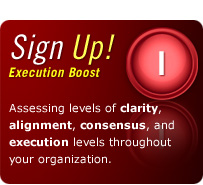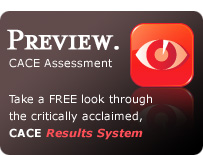April 2nd, 2007
by Dr. Brian Higley
Carl Rogers’ belief that cutting down on “B.S.” is a major idea put forth by such “candor advocates” as Jack Welch, Stephen Covey, and Jim Collins. Rogers believed that being more of who you really are decreases the wasted time, energy, and money that comes with having to constantly put up a front. Welch believed this authenticity resulted in fewer subversive political games, fewer low-grade excuses for not getting things done, and more problems being placed squarely on the table to work out more quickly.
Read the rest of this article »
April 1st, 2007
by Dr. Brian Higley
Many leaders – either consciously or unconsciously – promote trust in themselves at the cost of promoting trust in their employees’ own selves. This is often done by encouraging employees to see “good” as “what the boss approves of.” To some leaders, this might seem great, but before you make that judgment, you might want to revue the benefits of encouraging self-trust throughout your entire team.
Read the rest of this article »
April 1st, 2007
by Dr. Brian Higley
Being able to recognize and truly appreciate (instead of simply tolerating or accepting) others’ differences typically leads to more perspectives and a greater amount of ideas. Many great business leaders and authors talk about what results from this appreciation. From the generation of more solutions to the identification of increased opportunities to succeed, encouraging individuals to continuously be proud of their differences can be a powerful strategy toward a more fully functioning organization.
Thus, the wise leader looks for the utility in differences rather than trying to make everyone more like them. It has been our experience that this practice typically increases energy and motivation in all people involved – and saves the energy that is typically spent trying to change others to be more like “me.” The “be more like me” method of leadership and management usually results in an energy drain in both oneself and in others, while appreciating and utlizing differences can be an incredible energy boost for all.
Click here to read more about Fully Functioning Organizations
January 18th, 2007
by John Spence
For more than a dozen years I have traveled worldwide sharing my insights and ideas with top companies. From IBM and GE to Merrill Lynch and Verizon I have had the opportunity to work closely with senior managers at more than 300 companies. And almost to a person, their top concern after one of my classes is always: “John, we love your session, these are amazing ideas that could have a huge impact on our business… but how do we make sure we take these ideas and put them into action? How do we make sure the training sticks, that this is not just an event but a real catalyst for positive change?”
The answer is simple, but by no means easy. The fulcrum for taking ideas and turning them into action is creating a performance-oriented culture of “disciplined execution.” An organization where people have a sense of urgency to get the most important priorities accomplished and where every person holds themselves and their fellow workers 100% accountable for accomplishing key goals.
Read the rest of this article »
October 11th, 2006
by John Spence
I think I am going to get my team to design a new t-shirt for me, it will say in big letters on the front “The Messenger” and all around it will be drawings of bullet holes with blood running down.
Yes, they still shoot the messenger! For the past several years I have been deploying a very in-depth and well-researched “Organizational Effectiveness Audit” for many of my clients. Based on my own experience in working with several hundred companies and adapted from the national “Great Places to Work” study, the audit is superb for identifying specifically where organizations are strong… and where they need work.
Read the rest of this article »



